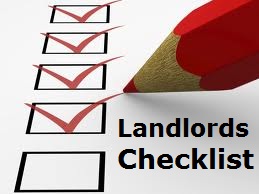The relationship between a tenant and landlord may be exasperating if not managed correctly. This becomes even worse in times of uncertainty. Imagine having occupied certain premises for a good few years only to open an email from your landlord explaining that he’s decided to sell the property which you occupy. Most people’s reaction would be a state of panic with questions such as what is going to happen to me know? What if the new landlord and I do not get along? Are we going to continue with the lease agreement or am I supposed to start looking for alternative accommodation. We answer all these questions below.
What does the law says?
According Adrian Goslett, regional director and CEO of RE/MAX of Southern Africa, the law does not prevent homeowners from selling their property while it is being rented out to a third party.
Although there is no obligation on the tenant to start looking for alternative accommodation immediately as the lease agreement will remain in effect under the new landlord and the tenant will be obligated by law to respect the stipulated terms, as will the new landlord. If the tenant is of the view that they would much rather look for alternative accommodation, section 14 of the Consumer Protection Act stipulates that a fixed term contract within the fixed term can be terminated early on the condition that the new owner is a supplier who lets property in the ordinary course of their business. The tenant needs to give a 20 business day notice period during the term of the lease. The tenant may be liable for the notice month and possibly a reasonable penalty fee.
What is the position if the tenant would like to renew the lease agreement?
According to property 24 the new owner’s intention needs will be definitive. If the home was purchased as an investment property, then a renewal maybe possible, but if the property was purchased as a primary residence, the new owner will not want to renew the lease as they will want to take occupation as soon as possible.
The new owner will have to check the previous lease for a renewal clause that outlines how much notice you must give in such a situation. If there no renewal clause then the landlord may invoke the cancellation clause of the original lease, if there is one, in order to get out of the agreement.
Without a cancellation clause, the best way to get out of the contract would have been to give your tenant one month’s notice, in writing, before the lease expired. (So if you were nearing the end of a 12-month lease, you should have let your tenant know, in writing, at the end of the eleventh month.)
Tips:
- If the landlord is thinking of selling the property have a proper consultation with them enquire what your options are and what purpose is the leased property being sold.
Comments are closed.





